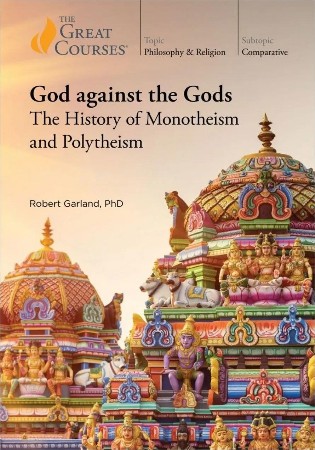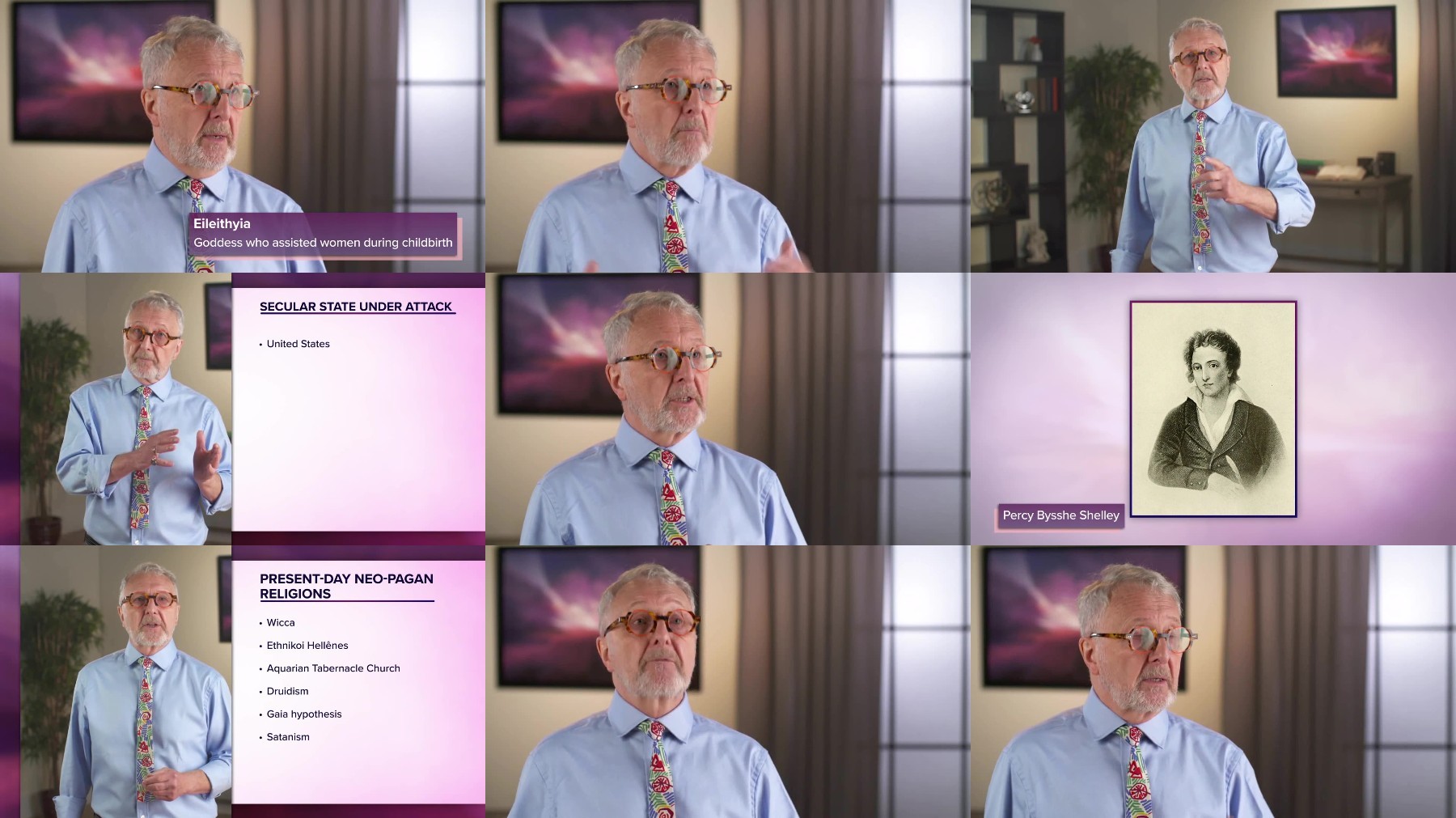Most Commented
TTC Video - God against The Gods: The History of MonoTheism and PolyTheism




Description material

TTC Video - God against the Gods: The History of Monotheism and Polytheism
.MP4, AVC, 1280x720, 30 fps | English, AAC, 2 Ch | 6h 54m | 5.77 GB
Lecturer: Robert Garland, Ph.D. Professor, Colgate University | Course No. 60130
Religion is foundational to what it means to be human. Our quest for meaning is as ancient as our very existence, stretching back to a time when Neanderthal burials and Paleolithic figurines suggest our ancestors recognized a power that transcended visible reality. From ancient civilizations to the 21st century, belief in a higher power seems to be a universal human instinct. It tells us much about where we came from—and who we are today.
What's fascinating is that this universal instinct has led some cultures to believe in one God while others worship a pantheon of higher beings. This divide between God and the gods raises unique questions in humanity's search for existential meaning, such as:
- What is the role of a higher power in human affairs?
- How do we reach out to a deity (or deities), and which deity do we contact?
- Do good and evil exist in human morality, or are they products of religious doctrine?
- What happens when we die? Is there an afterlife?
Travel across time and around the world to explore these questions and more in God against the Gods: The History of Monotheism and Polytheism. Taught by acclaimed Professor Robert Garland of Colgate University, these 12 thought-provoking lectures introduce you to the world of comparative religion, giving you insights into a variety of religious expressions and human cultures.
Among other domains, your course will cover:
- The earliest manifestations of religion in Mesopotamia and ancient Egypt;
- The pantheons of ancient Greece and Rome;
- The Abrahamic faiths of Judaism, Christianity, and Islam;
- Hinduism; and
- Folk religions in the world today.
Throughout your study, you will learn that although religions can be organized according to monotheism versus polytheism, there are core ideas at work among different religions that can unite us in a common humanity. God against the Gods: The History of Monotheism and Polytheism is ultimately about human connection and the ties that bind in a chaotic world.
Is It Really God Versus Gods?
This course divides religion into monotheism (the belief in one god) and polytheism (the belief in many gods), but you don't have to investigate too deeply to discover the line between these belief systems is not a simple either/or.
Take Hinduism, for example, which is the largest polytheistic religion in the world today, with gods such as Vishnu, Shiva, and Lakshmi. However, digging into the faith, two things quickly become apparent. First, it might be more precise to talk about Hinduisms rather than one unified religion. Second, it's possible to view the many Hindu deities as manifestations of one supreme creator. Therefore, is it even accurate to call Hinduism polytheistic?
The world of monotheism is equally muddled. When you delve into the sacred scriptures of Judaism and Christianity, for instance, you find instructions to worship the one God of Abraham—but other gods exist and should be turned away from as false gods. These monotheistic religions arose from a polytheistic world (as you will learn, the technical term is "henotheism").
Monotheism and polytheism are distinct ways of understanding the world—and the world(s) that may lie beyond—but they don't represent a clean dichotomy.
A World of Mystery
The word religion comes from a Latin word that means bond, referring to the bond that exists between a group of people and their god or gods. Whether we are talking about an ancient sky god or earth goddess, the pantheon of gods in Greece and Rome, or the single God of Abraham in Western faiths, there are many commonalities across religions.
One fascinating question is: How did humans begin to conceive of a god or gods in the first place? To search for answers, Professor Garland takes you back to the Epic of Gilgamesh, which includes the story of a flood much like you find in the Book of Genesis, as well as a profound meditation upon the inevitability of death. What caused the flood? What causes rain? Why is the world the way it is?
This course surveys the many ways religions have sought to answer these unanswerable questions, from the Egyptian pantheon of gods who were part animal-part human, to the various Greek gods bickering over human affairs from a lofty perch on Mount Olympus, to the Judeo-Christian conception of sin and morality.
From these questions about the nature of the world, religions offer a path to contacting the deities, sometimes through prayer and sometimes through sacrifice. Likewise, sacred scriptures—the Bible, the Quran, the Upanishads—offer blueprints for understanding the mysteries of the universe and how to live in accord with a god or gods.
The Ties That Bind
One reason Professor Garland is so passionate about this subject is because history has seen so much violence, bloodshed, and persecution in the name of religion. He is highly regarded for his ability to evoke the daily life of ordinary people, and he approaches every culture in this course with sensitivity while offering the insights of an historian.
As he explores the varieties of religious experiences around the world, you might discover something surprising. While the lectures identify deep divisions between polytheism and monotheism, every religion tells us something profound about humanity's inexorable drive to find meaning in the universe—and our place within it.
God against the Gods: The History of Monotheism and Polytheism illuminates the conflicts that have shaped our spiritual landscape, but it also offers the possibility of reconciliation for our diverse world.
More Info

DDownload
Warning! You are not allowed to view this text.
RapidGator
Warning! You are not allowed to view this text.
FileStore
TurboBit
Warning! You are not allowed to view this text.
FileAxa
Warning! You are not allowed to view this text.
Join to our telegram Group
Information
Users of Guests are not allowed to comment this publication.
Users of Guests are not allowed to comment this publication.
Choose Site Language
Recommended news
Commented



![eM Client Pro 9.2.1735 Multilingual [Updated]](https://pikky.net/medium/wXgc.png)






![Movavi Video Editor 24.0.2.0 Multilingual [ Updated]](https://pikky.net/medium/qhrc.png)

